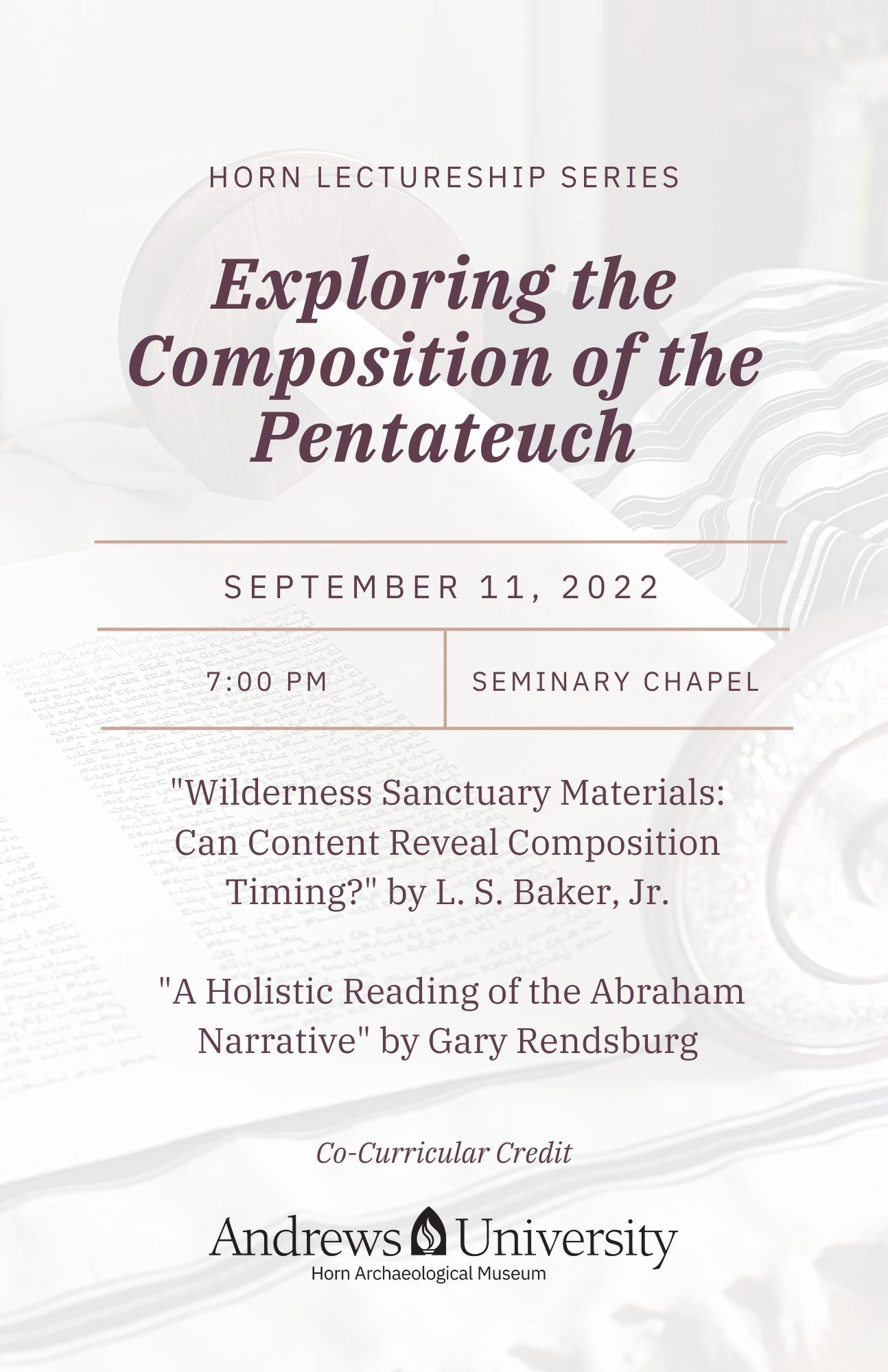Egyptian Idea of Canon in Literature and Some Possible Implications for Hebrew Scribal Traditions and the Writing of the Torah
Presenter Status
Professor of Near Eastern Archaeology and Old Testament, Department of Old Testament and Semitic Languages
Location
Seminary Chapel
Start Date
4-4-2016 4:00 PM
End Date
4-4-2016 4:50 PM
Session
Comparative Studies
Presentation Abstract
This paper will explore Egyptian scribal tradition and the idea of canon. Principally, canonical texts are those that continue to be copied and used over centuries of time. What made these pieces of literature, like the Story of Sinuhe and Wisdom texts like Ptahhotep, worthy of continued use over centuries of time? Similarly with funerary texts, some Old Kingdom Pyramid Texts spells continued to be copied and edited in subsequent period that span more than a millennium after in the Book of the Dead.
This study will examine some of these texts to see how they were transmitted and to what extent they were accurately transmitted. It is evident that canonical texts were not arbitrarily altered, rather every effort was made by Egyptian scribes to preserve documents with only minimal updating being made and in some cases, glosses were offered to explain archaic words or obscure religious terms to later audiences. I contend that this same care for texts was also adopted by Hebrew writers and scribes in the transmitting of biblical books, especially the Torah.
Biographical Sketch
James K. Hoffmeier has been Professor of Near Eastern Archaeology and Old Testament at Trinity International University, Divinity School (Deerfield, IL) since 1999.
Hoffmeier graduated from Wheaton College with a BA in Near Eastern Studies and Archaeology. At the University of Toronto he received his MA in Egyptian Archaeology in 1975. He participated in excavations in Egypt in 1975 & 1977 with the Akhenaten Temple Project directed by Professor Donald Redford. He completed his Ph.D from the University of Toronto in 1982, concentrating on Egyptian Religion. From 1980 to 1999 he was on the faculty of Wheaton College (IL).
Since 1994 Hoffmeier has directed the North Sinai Archaeological Project that was devoted to researching and studying Egypt’s frontier during the New Kingdom, which included investigating Tell el-Borg from 1999 to 2008.
Hoffmeier has authored a number of books, including “Sacred” in the Vocabulary of Ancient Egypt (Orbis Biblicus et Orientalis; Freiburg University Press, 1985), Israel in Egypt: Evidence for the Authenticity of the Exodus Tradition (Oxford University Press, 1997 & 1999), Ancient Israel in Sinai: Evidence for the Authenticity of the Wilderness Tradition (Oxford University Press, 2005/2010), The Archaeology of the Bible (Oxford: Lion Hudson, 2008) is now available in German, Italian, Spanish, Dutch, Romanian and Norwegian. In 2009 he authored The Immigrations Crisis: Immigrants, Aliens and the Bible (Crossway). He edited and contributed to Abortion: A Christian Understanding and Response (Baker, 1987), Faith, Tradition and History: Old Testament Historiography in its Near Eastern Context (Eisenbrauns, 1994, and re-released as a paperback in 2010) and The Future of Biblical Archaeology (Grand Rapids: Eerdmans, 2004), and Do Historical Matters Matter to Faith (Crossway, 2012). The first volume of the final report of the excavations at Tell el-Borg appeared in 2014 Excavations in North Sinai: Tell el-Borg I (Winona Lake: Eisenbrauns), and his latest book is Akhenaten, His Religion and the Origins of Monotheism (Oxford University Press, 2015), and Genesis: History, Fiction, or Neither? Three Views on the Bible's Earliest Chapters (Counterpoints: Bible and Theology), with Gordon Wenham & Kenton Sparks (Grand Rapids: Zondervan, 2015).
Hoffmeier has also appeared in a number of TV programs on Egypt and the Bible for the Discovery Channel, the Learning Channel, the History Channel and National Geographic.
Married in 1974, James and his wife Cathy have two children, Jessica and Benjamin.
Dr. Hoffmeier is an elder in his church, Crossroads Community Church (Carol Stream), and speaks at various conferences, and teaches and preaches in churches in American and around the world.
Egyptian Idea of Canon in Literature and Some Possible Implications for Hebrew Scribal Traditions and the Writing of the Torah
Seminary Chapel
This paper will explore Egyptian scribal tradition and the idea of canon. Principally, canonical texts are those that continue to be copied and used over centuries of time. What made these pieces of literature, like the Story of Sinuhe and Wisdom texts like Ptahhotep, worthy of continued use over centuries of time? Similarly with funerary texts, some Old Kingdom Pyramid Texts spells continued to be copied and edited in subsequent period that span more than a millennium after in the Book of the Dead.
This study will examine some of these texts to see how they were transmitted and to what extent they were accurately transmitted. It is evident that canonical texts were not arbitrarily altered, rather every effort was made by Egyptian scribes to preserve documents with only minimal updating being made and in some cases, glosses were offered to explain archaic words or obscure religious terms to later audiences. I contend that this same care for texts was also adopted by Hebrew writers and scribes in the transmitting of biblical books, especially the Torah.




Images